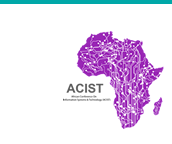Start Date
26-8-2021 12:00 AM
End Date
27-8-2021 12:00 AM
Description
The world is evolving fast in terms of digital technological advancements. Nevertheless, most Malawians still lack basic digital skills. This paper starts by defining basic digital skill, learning from different frameworks through strategic document review, then justifies why basic digital skills should be introduced early in basic education institutions and be considered on the same scale of importance as traditional literacy skills. The paper then advocates for early uptake and acceptance of basic digital skills as mandatory life skills in Malawi’s basic education system and that the basic digital skills should be treated in the same level of necessity as traditional literacy skills. The paper further accentuates that the spectrum of digital skills has grown tremendously in recent years such that attaining competitively productive Information and Communication Technology (ICT)graduates requires the introduction of entry-level digital skills to be consigned further down on the Malawi national qualification framework to primary schools, adult literacy institutions and out-of-school training houses. This would, not only leave the masses of learners who drop from the education system with necessary basic digital skills to access digital information for their livelihood and lifelong learning, but also create opportunity for undergraduate university students to meaningfully engage emerging technologies. Lastly, the paper alludes that such restructuring of content would accord ICT graduates with modern skills that, not only matches the current and projected market demand of digital skills, but also adequately prepare the graduates to follow the cutting-edge of the fast-advancing digital skills continuum. This would entrench the necessary ICT-enabled resilience of Malawi as a nation.
Basic Digital Skills: Next CriticalSkills Set towardsa Resilient Nation
The world is evolving fast in terms of digital technological advancements. Nevertheless, most Malawians still lack basic digital skills. This paper starts by defining basic digital skill, learning from different frameworks through strategic document review, then justifies why basic digital skills should be introduced early in basic education institutions and be considered on the same scale of importance as traditional literacy skills. The paper then advocates for early uptake and acceptance of basic digital skills as mandatory life skills in Malawi’s basic education system and that the basic digital skills should be treated in the same level of necessity as traditional literacy skills. The paper further accentuates that the spectrum of digital skills has grown tremendously in recent years such that attaining competitively productive Information and Communication Technology (ICT)graduates requires the introduction of entry-level digital skills to be consigned further down on the Malawi national qualification framework to primary schools, adult literacy institutions and out-of-school training houses. This would, not only leave the masses of learners who drop from the education system with necessary basic digital skills to access digital information for their livelihood and lifelong learning, but also create opportunity for undergraduate university students to meaningfully engage emerging technologies. Lastly, the paper alludes that such restructuring of content would accord ICT graduates with modern skills that, not only matches the current and projected market demand of digital skills, but also adequately prepare the graduates to follow the cutting-edge of the fast-advancing digital skills continuum. This would entrench the necessary ICT-enabled resilience of Malawi as a nation.



